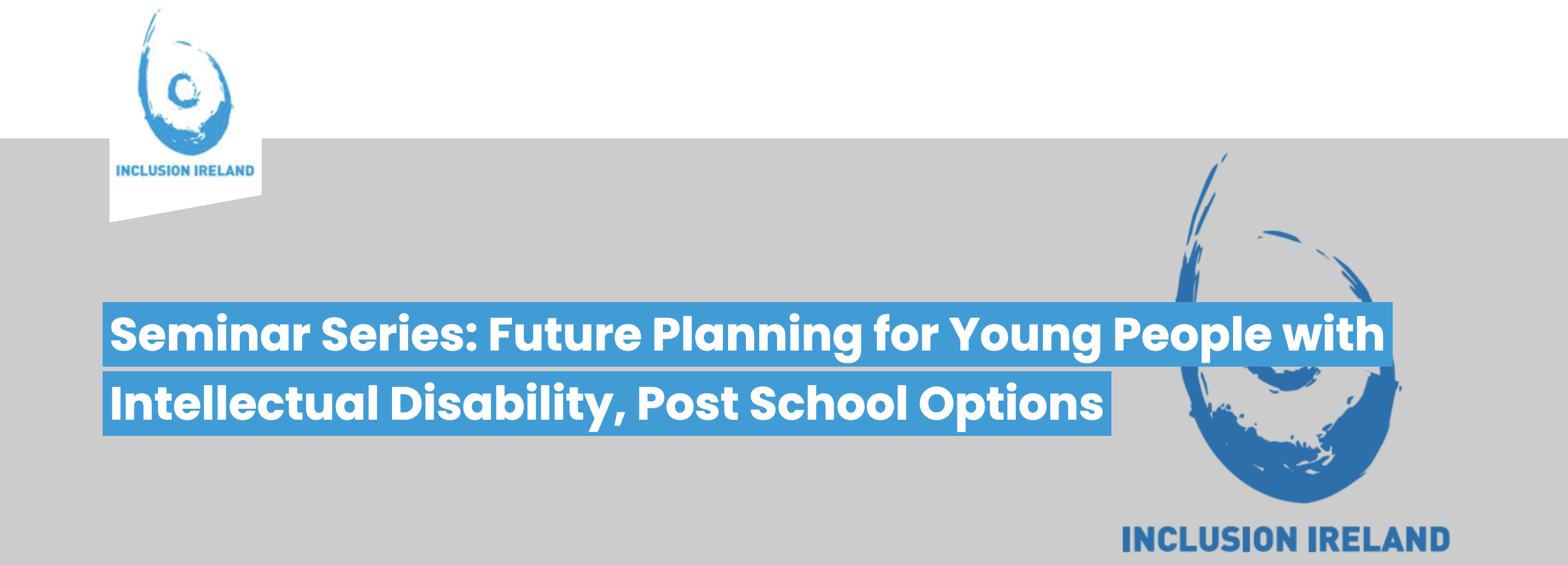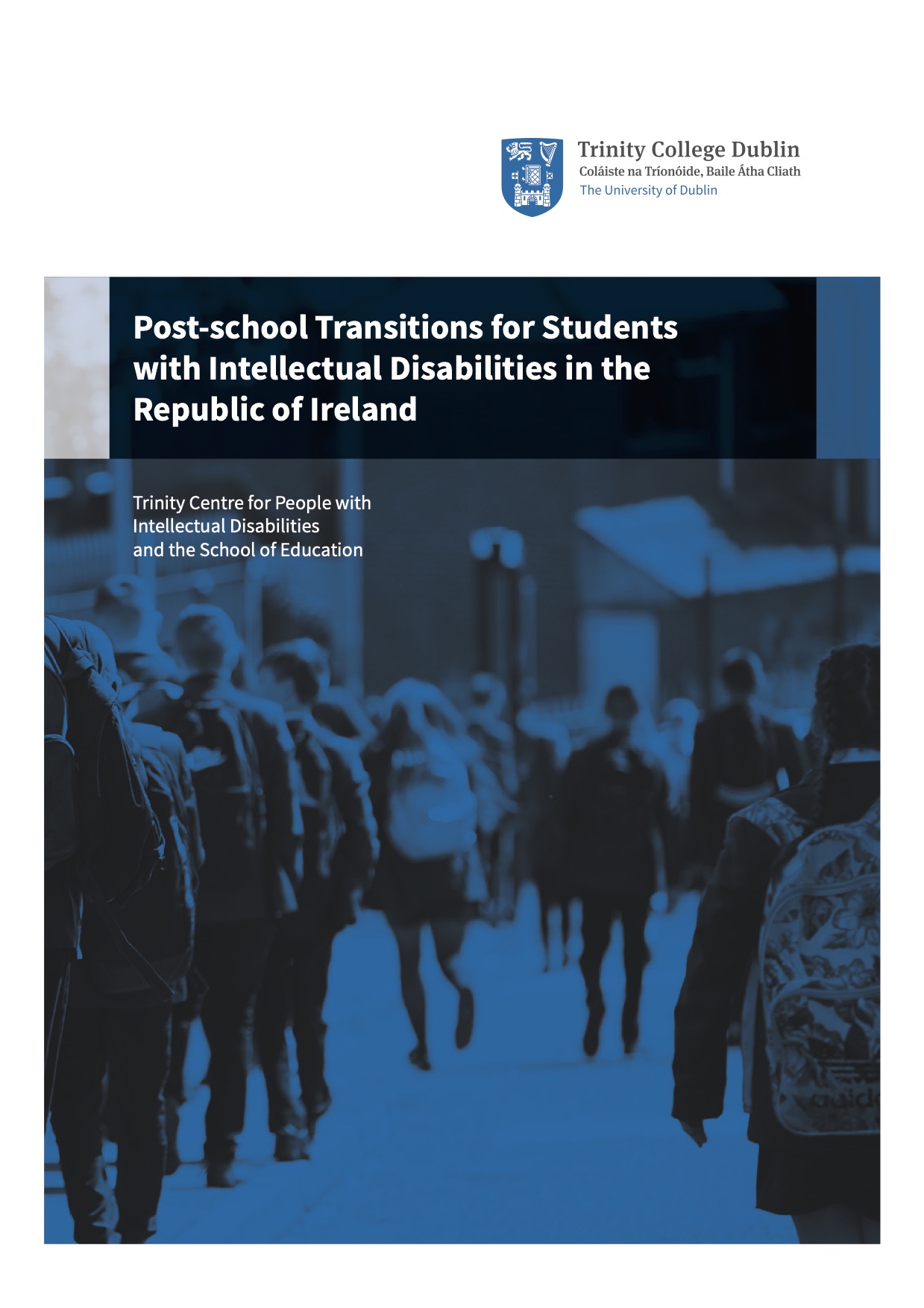Limited guidance for children with intellectual disabilities impacting progression into the workforce and further/higher education.
1st March 2021
The Trinity Centre for People with Intellectual Disabilities, and the School of Education have today (March 1st) published a research report entitled ‘Post-School Transitions for Students with Intellectual Disabilities’. This research found that there is limited guidance for children with intellectual disabilities attending mainstream second level schools in Ireland as they prepare to leave school, contributing to a significant underrepresentation within the workforce and further and higher education in the State.
The report highlights a number of contributing factors, including the lack of a consistent approach in schools and a need to identify clear professional roles in terms of who is responsible for supporting young people with intellectual disabilities to seamlessly transitions out of school. Typically, this would be the role of guidance in education, however, the Special Educational Needs Coordinator/Teacher often steps into this role.
Additionally, the report expresses concerns that there are not enough appropriate supports in further/higher education to support students with intellectual disabilities. Policy recommendations include the implementation of a whole-school approach to guidance provision and a whole-school approach to “inclusion” as a whole. The authors recommend an expansion of post-school options from traditional health-based settings to further and higher education and training opportunities that lead to meaningful career opportunities for our citizens with intellectual disabilities.
The research was conducted during the first wave of the Covid-19 pandemic and the initial closure of schools in March 2020. The report draws comparisons between the uncertainty of students with intellectual disabilities who have limited formal guidance for their post-school pathways in any given year, to the uncertainty experienced by the Leaving Certificate class of 2020, and their families, who were the focus of many media outlets at the time.
Des Aston, Co-Author of the research and National and Schools Coordinator, Trinity Centre for People with Intellectual Disabilities said:
“We hope this research will highlight the importance of a whole-school approach to inclusion. Inclusive education isn’t just about accessing an academic curriculum, albeit an integral part. We need to make sure that inclusive education encapsulates everything that a school experience should include – from the social life to guidance for adult life. Access to appropriate guidance and information, coupled with inclusive leadership and strong student support teams are some of the steps needed at school level. While further and higher education providers also have a duty to ensure equity of access and supports are made available to support seamless post-school pathways.”
Research has consistently highlighted the importance of formal career guidance and transition planning for students, as they prepare to leave post-primary education and enter further or higher education, training, employment, and adult life.
Jennifer McKenzie, Director of the National Centre for Guidance in Education said:
“It is incumbent on those of us in the provision of education, training and guidance supports to carefully reflect on the recommendations of this report and consider their implications for future policy and the provision of more suitable progression options for these young people, so that they too, just like their school friends, can aspire to achieve their own life goals.
“The one key message threaded throughout this report is the genuine concern of school management, personnel and parents to support young people with Intellectual Disabilities to make suitable transitions which will allow them achieve their potential. Realistically however, the report indicates a recognition and acknowledgment by relevant personnel that school policies and further professional development are required to ensure that school management, guidance counsellors and special education needs co-ordinators have the appropriate knowledge and competences required to work collaboratively to provide transition and progression planning and supports and for students with Intellectual Disabilities.”
The research was conducted by Mr Des Aston, Dr Joanna Banks and Professor Michael Shevlin and the findings are based on a national survey of Irish post-primary school principals and qualitative interviews with school personnel responsible for the transition planning and guidance provision for students with disabilities in their school.




Recent Comments